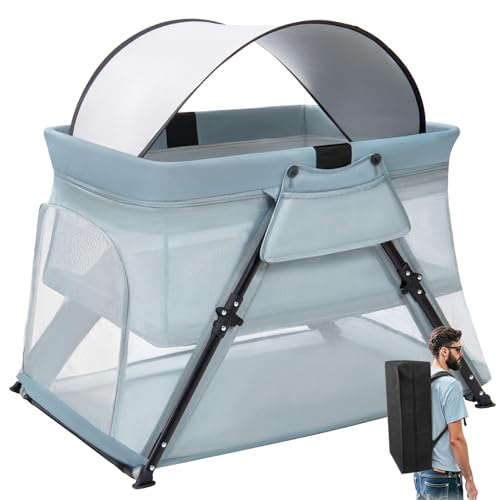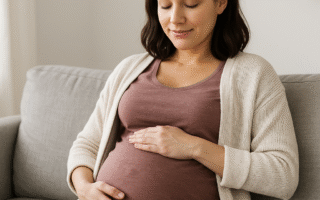Can I Drink Coffee While Pregnant? If you’re pregnant and love your daily cup of coffee, you’re definitely not alone. One of the most common questions expectant moms have is whether drinking coffee is safe during pregnancy. As you begin this beautiful and transformative journey, it’s completely normal to examine every detail of your diet—including your caffeine intake.
In this post, we’ll walk through the latest scientific recommendations about caffeine and pregnancy, how much coffee is considered safe, and what alternatives you might consider if you’re trying to cut back.
Let’s answer your most important questions and help you feel confident and supported every step of the way.
How Much Caffeine Is Safe During Pregnancy?
The current consensus from medical experts is that moderate caffeine intake is generally safe during pregnancy. But what does “moderate” actually mean?
Recommended Limit:
- 200 milligrams (mg) of caffeine per day is the widely accepted safe limit.
- That’s about one 12-ounce (355 mL) cup of brewed coffee.
This recommendation comes from organizations like the American College of Obstetricians and Gynecologists (ACOG) and the World Health Organization (WHO).
Keep in Mind:
- Caffeine is found in other products too—tea, chocolate, sodas, and some medications.
- Be sure to count all sources of caffeine, not just coffee.
Why Is Caffeine a Concern During Pregnancy?
When you’re pregnant, your body processes caffeine more slowly—especially as your pregnancy progresses. Caffeine can also cross the placenta and affect your baby.
Possible Risks of Excess Caffeine:
- Increased risk of low birth weight
- Higher chance of miscarriage (with high intake)
- Possible impact on fetal development
While these risks are generally associated with very high levels of caffeine, it’s wise to be cautious.
What Types of Coffee Are Lower in Caffeine?
If you want to keep coffee in your routine but stay well below the 200 mg limit, here are some options:
Coffee Options:
- Espresso (1 oz): 63 mg
- Instant Coffee (8 oz): 30–90 mg
- Decaf Coffee (8 oz): 2–5 mg
Drip-brewed coffee tends to have more caffeine than espresso-based drinks. Choosing smaller sizes or blends with less caffeine can help.
How Can I Reduce My Caffeine Intake Without Withdrawal?
Quitting caffeine cold turkey can lead to unpleasant symptoms like headaches or fatigue. Instead, try a gradual approach.
Tips for Cutting Back:
- Mix regular coffee with decaf
- Reduce cup size or brew time
- Switch to herbal teas with no caffeine
- Replace coffee with warm water and lemon or frothed milk
This approach helps your body adjust without the shock.
Are There Safe Alternatives to Coffee During Pregnancy?
Yes! If you’re looking for comfort and energy without the caffeine, there are many pregnancy-friendly drinks.
Caffeine-Free Alternatives:
- Herbal teas (like rooibos, ginger, or peppermint)
- Warm milk or golden milk (with turmeric)
- Fruit-infused water
- Chicory root coffee substitute
Make sure herbal teas are approved for pregnancy—some herbs aren’t safe, so check with your doctor first.
Does Decaf Coffee Contain Any Caffeine?
Yes, it does—though in much smaller amounts.
Typical Caffeine Content:
- Decaf coffee (8 oz): 2–5 mg
Drinking multiple cups of decaf could still contribute to your daily caffeine total, so keep track if you drink several servings a day.
What About Energy Drinks or Soda?
These can contain surprisingly high amounts of caffeine and added sugar.
Common Examples:
- Cola (12 oz): 30–50 mg of caffeine
- Energy drinks (8–16 oz): 80–200+ mg
Some energy drinks also contain other stimulants that may not be safe during pregnancy. It’s best to avoid them.
Can Caffeine Affect Sleep or Anxiety During Pregnancy?
Yes. Pregnancy can already affect your sleep and mood, and caffeine can make things worse.
Effects to Watch For:
- Trouble falling asleep
- Increased restlessness
- Jitteriness or irritability
If you notice these symptoms, consider reducing your intake or avoiding caffeine in the afternoon and evening.
Should I Avoid Caffeine Completely in the First Trimester?
The first trimester is a crucial time in fetal development, which is why many parents-to-be choose to be extra cautious.
Consider:
- Some studies link high caffeine intake in early pregnancy to increased miscarriage risk.
- Many healthcare providers recommend limiting caffeine even more in the first trimester, sometimes to 100 mg/day or less.
Talk to your doctor about what feels right for you.
Conclusion
So, can you drink coffee while pregnant? The answer for most women is yes—in moderation. A small cup of coffee in the morning can still be part of your daily joy, as long as you stay within the recommended caffeine limits.
Listen to your body, read labels, and talk to your healthcare provider if you have concerns. Your well-being is the most important guide.
Whether you decide to sip slowly or switch to decaf, you’re doing your best—and that’s what truly matters.
FAQs
Yes, if you stay within the 200 mg caffeine limit.
No. It has a small amount (2–5 mg per cup), but it’s usually safe in moderation.
High levels (over 300 mg/day) may increase risk. Moderate intake is considered safe.
Herbal teas, golden milk, warm milk, or chicory coffee.
More than 200 mg of caffeine per day is generally considered too much.
References
- American College of Obstetricians and Gynecologists (ACOG). Moderate caffeine consumption during pregnancy. https://www.acog.org
- Mayo Clinic. Pregnancy and caffeine: What’s safe? https://www.mayoclinic.org
- World Health Organization (WHO). Caffeine intake during pregnancy. https://www.who.int
- Centers for Disease Control and Prevention (CDC). Caffeine and pregnancy. https://www.cdc.gov
- NHS (UK). Foods to avoid in pregnancy. https://www.nhs.uk
I’m Cris Coelho, and motherhood has transformed my life!
As a speech therapist and early childhood educator, I’ve always been passionate about child development. But it was becoming a mother that truly opened my eyes to the real challenges and joys of this journey.
Here at Materníssima, I share everything I’ve learned — blending professional knowledge, real-life experience, and a heartfelt touch.
You’re very welcome here! 💕












